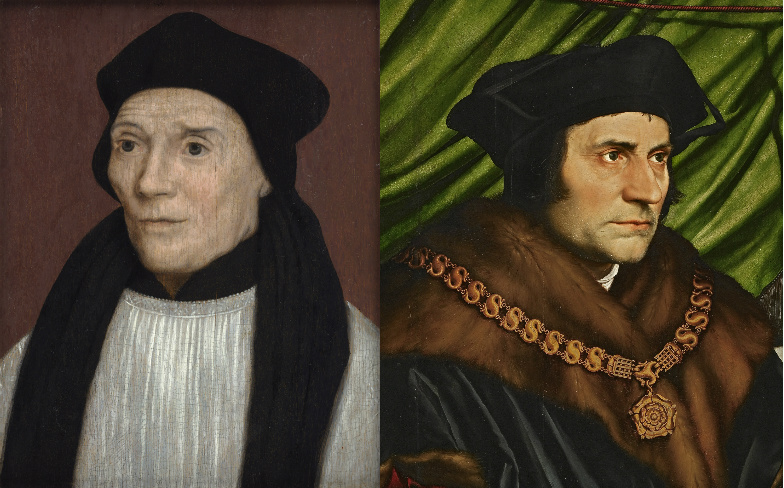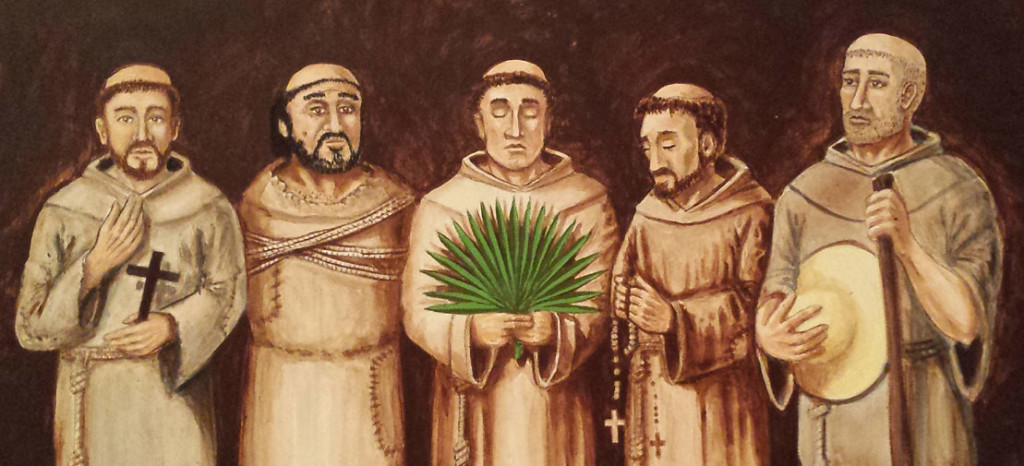So the culture wants to depart from the truth of marriage. This is not new. The nature of marriage has been a point of controversy for thousands of years.
In fact, some of the Church’s greatest, most venerated saints gave their lives defending marriage. Would you do the same?
[See also: The Worst Result of the SCOTUS Marriage Decision Won’t Be Persecution]
[See also: 13 Powerful Pope Francis Quotes Defending Marriage and the Family]
Here are their inspiring stories:
1) St. John the Baptist – 1st century

According to the Gospels, King Herod had divorced his wife and taken the wife of his brother. St. John the Baptist knew this was wrong and that the fact that Herod was doing this publicly made the sin even worse. So he confronted Herod. He didn’t point out the positive things about his adulterous relationship or try to make friends, but instead told him plainly: “It is not lawful for you to have her.” (Matthew 14.4)
Unfortunately, rather than repent, Herod had John arrested and put in jail. Scripture says Herod “wanted to kill John, but he was afraid of the people, because they considered John a prophet.” (Matthew 14.5) Nonetheless, when his daughter requested John’s head on a platter during a party, Herod acquiesced and had John beheaded.
Regarding John’s holiness, Jesus himself commended him, saying “among those born of women there has not risen anyone greater than John the Baptist.” (Matthew 11.11)
2-3) St. John Fisher & St. Thomas More – 16th century

Henry VIII, 16th century King of England, desperately wanted a son. After many years of trying to beget a son with Queen Catherine of Aragon, he decided he wanted to divorce her. Of course, divorce was not allowed, so he tried to get his marriage annulled by the pope. The pope reviewed the case and ruled that annulment was not legitimate in this case.
St. John Fisher, an English bishop (who was appointed a Cardinal not long before his execution), fiercely defended Catherine. He appeared in court on her behalf and declared that, like St. John the Baptist, he was willing to die to defend the indissolubility of marriage.
With King Henry assuming more and more power for himself, St. Thomas More, one of King Henry’s most trusted statesmen, resigned his government position. When King Henry married Anne Boleyn, More didn’t attend.
Soon, King Henry was forcing people to swear an oath declaring that King Henry was the supreme head of the Church in England, not the pope. More was specifically called to the King and asked to swear the oath and publicly acknowledge the annulment of the King’s marriage to Catherine. More refused to do both. Fisher also refused to take the oath and was imprisoned in the Tower of London.
Both were tried and found guilty of treason and beheaded publicly. More’s last words were: “I’m the king’s good servant, but God’s first.”
4-8) The 5 Georgia Martyrs – 16th century

The “Georgia martyrs” are not official saints yet, but their cause for canonization is in process. And they have an incredible story.
Pedro de Corpa, Blas de Rodríguez, Antonio de Badajóz, Fray Miguel de Añon, and Francisco de Veráscola were Franciscan friars who sailed to North America in the late 16th century to bring the Gospel to the Native Americans around the present-day U.S. state of Georgia.
Though they lacked supplies and life was hard, by God’s grace they were able to win some converts. The Christian teaching on marriage, though, was hard for some of the converts. So if a man with more than one wife wanted to convert, the missionaries would require that he promise to only keep one wife.
One man made the promise, was baptized, but then continued living with two wives. Fr. Petro de Corpa confronted him with support from Fr. Blas. Rather than repenting and holding to his promise at baptism, the man left in anger and returned with a war party. The group hacked Fr. Pedro to death with a sword, then went and captured Fr. Blas.
Before they killed Fr. Blas, they allowed him to celebrate Mass one last time, and he reportedly preached this during his sermon:
My sons, for me it is not difficult to die. Even if you do not cause it, the death of this body is inevitable. We must be ready at all times, for we, all of us, have to die someday. But what does pain me is that the Evil One has persuaded you to do this offensive thing against your God and Creator. It is a further source of deep grief to me that you are unmindful of what we missionaries have done for you in teaching you the way to eternal life and happiness.
After the Mass, they hacked him to death as well. Over the next few days, they killed the other three missionaries as well.
BONUS: Pope St. Nicholas the Great – 9th century

You’ve probably heard of Pope St. Leo the Great and Pope St. Gregory the Great, but have you even heard of Pope St. Nicholas the Great?
It was the 9th century, and King Lothair II of France wanted to divorce his wife and marry another woman. He bribed a papal legate and got a council of local bishops to approve an annulment of his marriage. When Pope Nicholas found out what had happened, he commissioned a retrial in Rome, which was attended by two archbishops that had allowed the questionable annulment. The pontiff found the annulment to be illicit and deposed the two archbishops.
Enraged, King Lothair II march his armies to Rome, took control of the city, and demanded that the pope recognize the annulment. Pope Nicholas was confined in St. Peter’s for two days without food – but refused to budge.
Finally, Holy Roman empress Engelberga convinced King Lothair II to leave the city which he did. But Pope Nicholas never granted that annulment and spent the rest of his life trying to reconcile King Lothair to his original wife.
[See also: Holy Cuteness! Rare Photos of 12 Saints as Children]
[See also: 5 Saints Who Totally Had Superpowers]

